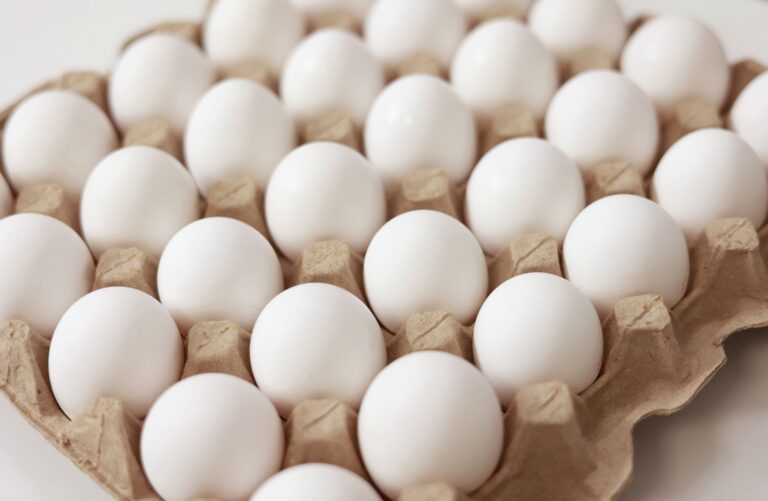White eggs made an unexpected comeback during the pandemic, when supermarkets bought eggs intended for foodservice. Now, they are now becoming a permanent fixture.
In the 1970s, most of the eggs sold in the UK were white. But this quickly changed as the perception grew among the public that brown eggs were healthier. Although there is no nutritional difference, the market responded to demand and for the past 50 years, brown hens and their eggs have been the egg of choice for British retailers, with most white eggs sold into the foodservice market.
During the pandemic, demand for groceries increased rapidly and the foodservice market was closed down for months on end. The assumption had been previously that consumers didn’t want white eggs, but when stocks of white eggs were diverted to supermarkets, they were snapped up.
This had helped changed perceptions, and presented egg producers with an exciting opportunity, Nick Bailey, managing director of genetics firm Joice & Hill Poultry, told delegates at BFREPA Live in November.
A shift was happening across the UK egg industry as more egg producers discover the benefits of white hens, he added. Slender framed white leghorns are breaking records in terms of production, and there are welfare benefits too.
Supply chain
“The advantages have been noticed by the supply chain,” said Bailey. What’s more, the rapidly approaching 2025 deadline for supermarkets to stop selling caged eggs is forcing the issue even faster, as producers have to embrace alternative breeds better suited to interacting with large numbers of other birds in barn or free-range systems. White breeds, which are more passive than their brown counterparts, are an ideal choice, Bailey said.
As Dutch owned breeding company, Joice & Hill is acutely aware of the need to manage changes in production systems with the correct bird, Bailey said. In 2005, retailers in the Netherlands decided to move away from caged egg systems. Producers quickly discovered white leghorns behaved and performed better on multi-tier aviary systems than brown birds. Now such breeds make up 70% of production in the Netherlands.
Beak treatment is another consideration. While it is still permitted in the UK, this is not the case in some European markets, including the Netherlands. “Some breeds of white hens are easier to manage with full beaks than brown,” he said.
Sustainability
Sustainability is another factor. Some white breeds, such as the Dekalb white have longer production cycles. “The carbon footprint is 4% lower than with brown breeds,” said Bailey.
Bailey said white birds were far more responsive to the selecting for long laying periods than brown.
Dekalb Whites were “unbelievably responsive” to this selection process, said Bailey, and 100-week-old flocks averaging 500 eggs was becoming more common in commercial production.
As this achievement has become more frequent, Joice & Hill had created the ‘Dekalb white 500 egg club’ for flocks that have achieved 500 eggs per hen housed over 100 weeks. “It is testament to the breed and farmers’ excellent management,” said Bailey.
Extending the laying cycle translates into a real impact on the financial bottom line. There are clear advantages and savings to buying one less flock of pullets over a five year period, compared to brown birds, which will typically be taken to 78 weeks.
Leap of faith
Gordon Alexander is production director of Yorkshire Farmhouse Eggs. He told the conference about his experience with Dekalb Whites. Before choosing to take on a flock, he went to see a flock at 100 weeks. He said it was a “leap of faith” to go into white hens bit has found them “spot on”.
In a flock of 16,000 brown birds, he typically expects 100-250 floor eggs. With white eggs, numbers are around 25 for the same size flocks. Smothers “just don’t happen,” with white birds, he said. In addition, mortality figures are impressive. At 50 weeks, there is less than 1% mortality. The equivalent figure for brown birds is 3-4% mortality.
Alexander said he was aiming to keep the flock of Dekalbs to 110 weeks and thought the future was bright for white hens. He said he believed white eggs could take up to 50% of the UK retail egg market in the coming years.


